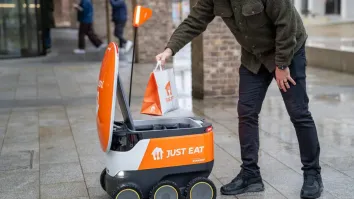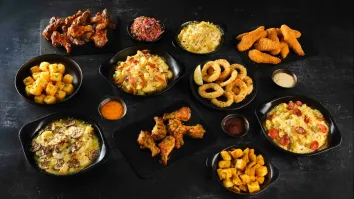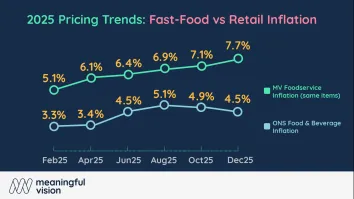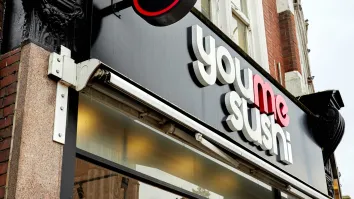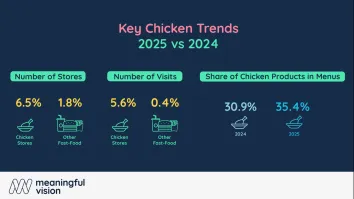Swallowing the cost of Brexit: top tips to stop food prices eating the profits
Revenue Management Solutions managing director Philipp Laqué offers his advice on making menus profitable without losing business.
High Speed Training has published the results of a study, which suggest 85% of restaurant owners expect to raise menu prices after Brexit, with a third anticipating increases of more than 20%. The survey also spoke to 1,000 consumers, who said the rises would mean they either cut back on the number of occasions they decided to dine out or avoided restaurants altogether.
Clearly, losing customers because of price increases is worse than leaving prices as they are. But what else can businesses do to cope with the anticipated rise in the cost of labour and ingredients? It’s certainly a battle but it’s one that operators can win by being proactive and using pricing and non-pricing tactics that should soften the blow. Here are my top tips to making menus pay without losing business.
Pricing tactics
- Point-of-sale data will tell an operator about their customers’ buying behaviour. Purchases will vary by time of day, day of the week and the location for multi-site businesses;
- Each site should be viewed on an individual basis. Operators should look at what internal or external factors may be helping or hindering business at that location and develop a local pricing strategy. Larger operators may examine common characteristics between locations, allowing the same menu changes to be made for a cluster of sites;
- Prices must be raised selectively and building profit margin should be a long-term exercise. Operators should avoid raising a significant number of prices at once and instead make several rounds of smaller changes. It can help to tell customers why a price has increased but operators should use this approach sparingly;
- Customers usually have thresholds for how much they’re willing to pay. Changing a price from £7.60 to £7.99 should result in less pushback than a rise to £8.10. If a party of four is used to paying £40, operators should be careful not to push it to £50.
Non-pricing tactics
Menu prices won’t be able to absorb all the cost increases operators are expecting. However, there are other mechanisms that can prevent decreases in profit margin:
1. Menu engineering
Operators can draw customers to more profitable items by maximising awareness of them on the menu. Top sellers should be first in a section, while other items that perform well could benefit from visual cues, such as boxing, photography and enticing descriptions. Operators should ensure highlights cover all protein options and an array of price-points.
2. Using limited-time offers
Development teams should be identifying on-trend products that can support higher prices. Operators should be mindful that new items fit the brand and the customer base. Some research might be required to find out what interests the relevant consumers, while existing transactional data will reveal the most popular product categories.
3. Upselling
Operators can increase the bill by offering premium substitutes or add-ons. Ingredients such as bacon and avocado have recently enjoyed significant success as add-on items, while upgrades to higher-quality proteins, such as steak, or sides such as sweet potatoes, have seen growth. A tactic commonly used by quick service operators is suggesting customers swap a fizzy drink for a milkshake for a discounted upsell price, for example. However, operators must not erode profits and train staff to be aware when a customer is already prepared to pay full price for an item.
4. Bundling
Bundles not only allow the business to build orders but also increase their perceived value. Add-on rates for desserts are generally lower and an operator can improve perceived value by including the sweet treat in a deal. Food costs to the operator will be reduced if lower-cost or smaller-portion items can be bundled in too. It’s important to analyse the success of these schemes by looking at the changes in buying behaviour that result: what did they purchase before switching to the bundle? How did that swap influence total spend?
Investing time and research into these ideas can seem daunting but the benefits will make that effort worthwhile for the long-term health of the business in these uncertain times.


